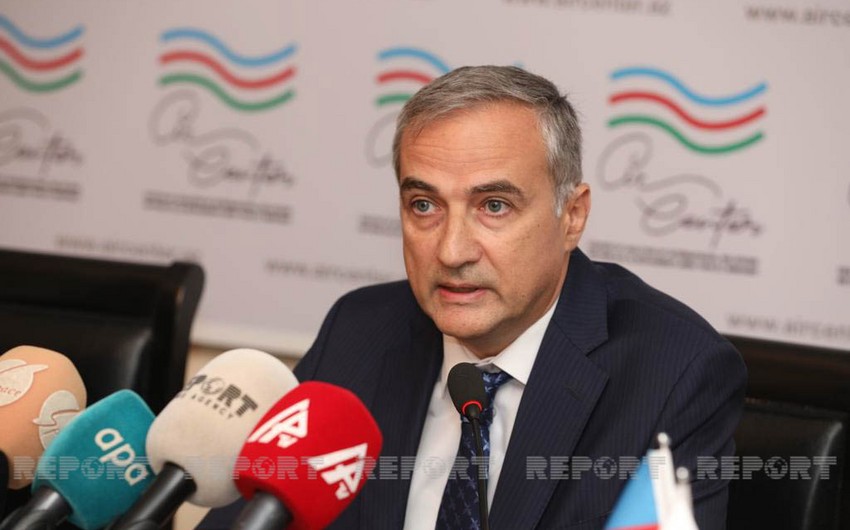The South Caucasus can be freed from foreign intervention when the countries of the region genuinely respect each other and reconcile, rather than seeking patrons elsewhere, Farid Shafiyev, Chairman of the Management Board of the Center for International Relations Analysis, wrote in an article titled 'A Geopolitical Shift in Russia’s Backyard Depends on Countries Themselves, Not External Powers'.
He noted that with Azerbaijan’s establishment of full sovereignty over its Karabakh region, it seems that the three-decades-long dispute came to an end, however, the road to peace is still ongoing: "In the meantime, some experts speak about the region’s realignment, mainly focusing on Armenian-Russian relations, which are military and economic allies. Armenia continues to provide many Western sanction-listed goods to Russia, and the United States has put several Armenian companies on the blacklist. Armenia is heavily dependent on the Russian economy, with $4.6 billion in trade, mainly consisting of Armenian exports of Western products that Moscow can no longer get directly."
Shafiyev wrote that The current spat between Yerevan and Moscow has much to do with the Armenian expectation that Russia would continue to support its irredentist adventure into the Karabakh region of Azerbaijan, which, along with several adjacent areas, was under Armenian control for almost three decades:
"With the current focus on the situation around Armenia and the so-called Zangazur corridor, which is supposed to connect Azerbaijan proper with its Nakhichevan exclave, several news outlets and experts have warned about the danger of a new escalation.
"With a plethora of articles by experts about the possible Azerbaijan “takeover” of Zangazur and the Armenian departure of Karabakh, let’s first recall the basics. First, the conflict between the two parties began with the Armenian slogan miatsum (unification) some thirty-five years ago, which means that the cause of the conflict was an Armenian territorial claim. Second, 99 percent of all actions and destructions happened on the territory of Azerbaijan, which is the most adversely affected side of the conflict. Third, the first complete ethnic cleansing happened in Armenia during 1988–89 - no Azerbaijani was left there. Fourth, international law was on the Azerbaijani side with four resolutions demanding the withdrawal of occupying forces from Azerbaijani territories. The perpetuating stories about Azerbaijan’s plan to take over Armenian territory - a plan which was dismissed repeatedly by Azerbaijan and even US officials reported as fake, serve no one in the region."
According to the article, both countries should make efforts to bring sustainable peace to the region: "This rests on a peace treaty based on firm support and mutual recognition of the principle of territorial integrity. To achieve this, the media has a role to report fairly and encourage both countries toward cooperation. Stories infused with one-sided propaganda clichés ignite emotions and prolong the conflict. Further, the conflict left deep emotional scars on both peoples and governments, and the public should work together to promote reconciliation. Here, international actors can help with relevant experience from the British-Irish dialogue, the Balkans platform, and other peace-building initiatives."
He noted that the issue of refugees and internally displaced persons remains a burden for both countries:
"With the focus on the fate of Armenians who left the Karabakh region of Azerbaijan, some countries call for their return to homes. However, the question of refugees needs a holistic approach, which implies that Azerbaijanis are also entitled to move back to Armenia, which will entail security guarantees and other arrangements.
"Transportation projects and other economic incentives might break the barriers created by war. In this domain, efforts should go beyond the bilateral Armenian-Azerbaijani context. The trilateral format of South Caucasus countries where Georgia might emerge as an important interlocutor looks promising. The bottom line is that the region’s countries should take ownership of the South Caucasus back into their hands."


 https://static.report.az/photo/6910b9ab-15a5-336d-bf45-0838d8480367.jpg
https://static.report.az/photo/6910b9ab-15a5-336d-bf45-0838d8480367.jpg

